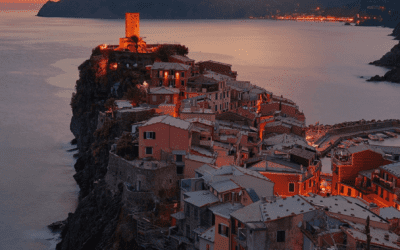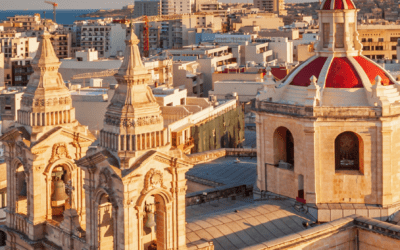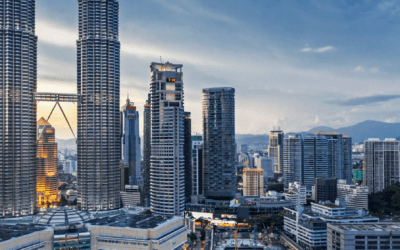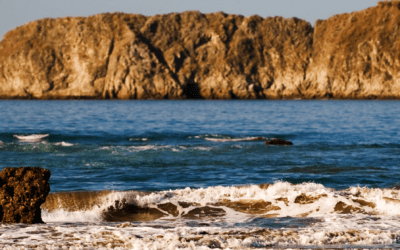Our founder, Andrew Henderson, is a big fan of Dave Ramsey’s book EntreLeadership.
It is a guide to building and leading successful businesses based on simple entrepreneurial principles, one of which is the importance of having no debt.
In this article, we will discuss what led to the implosion of Kongo Gumi, one of the oldest companies in the world, which dates back to 578 AD, and what lessons on debt management can be learned.
Why Avoid Debt?
In the United States, it is all too easy to get into debt, and you can secure a loan at the push of a button. Unfortunately, the misconception that debt is normal and possibly even a tool for building wealth is widespread in our culture.
Debt always equals risk, and more debt always equals more risk, regardless of whether it is used for investments or not. Being debt-free in the face of an economic downturn is especially important. This was a hard-earned lesson for many during the great recession of 2008.
These days normalized large debt payments, such as credit cards, mortgages, and car repayments, hinder the financial progress of individuals and companies alike. Avoiding debt altogether and maintaining a good income is the better way to build wealth.
What Happened to Kongo Gumi?
The Japanese construction company was formed some 1,428 years ago by Korean immigrant Shigemitsu Kongo.
Buddhism was gaining popularity across Japan, and the royal family needed an experienced temple builder, so they did what we often recommend doing. They began looking offshore for talent, eventually commissioning Kongo.
A true entrepreneur, Kongo created Kongo Gumi, which went on to build many of Japan’s temples, including the first state-built project, Shitenno-ji.
Kongo Gumi’s success was impressive and continued to be profitable for centuries. Even up to 2004, the company enjoyed revenue of $60 million.
However, the construction giant’s troubles began in the 1980s when Japan experienced an enormous financial bubble. Thanks to the relaxed lending standards, taking on debt was the norm, and many Japanese companies, including Kongo Gumi, took on large amounts of debt.
After this bubble burst, Kongo, like many others, was left with huge debts that it struggled with for nearly 20 years until it finally collapsed under pressure in 2006. When it finally filed for
bankruptcy, its total debt was about 4 billion yen.
The example of Kongo Gumi emphasizes the devastating impact of debt. This construction company, which was sustained by temple building, survived a 250-year period known as the Meiji Restoration, during which the Japanese government tried to eradicate Buddhism from the country, including its buildings, yet it could not survive modern-day debt burdens.
Lessons Learned from Kongo Gumi
Whether from a personal or business point of view, the lesson is clear, debt kills. The first thing is to clear outstanding debts and loans. Your debt-reduction strategy will depend on personal spending habits and the amount of debt owed. Get rid of outstanding loans as quickly as possible, factoring in interest on your debt when setting the timeline.
Collecting outstanding payments, implementing shorter payment terms, and renegotiating client fees can also help reduce debt and ensure nothing is eating away at your profitability.
Of course, it’s all well and good taking financial responsibility for yourself and your business, only to wind up in a financial crisis because your own government racks up billions in debts and the danger is they’ll rely on excessive taxes to balance the books.
You may not own a giant like Kongo Gumi, but you are a stakeholder in the country where you live and do business. You are liable for taxes in that territory, which are based on the country’s debt level.
As they take on more debt, the government can raise taxes in an effort to make up the shortfall. In the words of Doug Casey, (a regular favorite speaker at our Nomad Capitalist Live events) you are a dairy cow. Banks and governments effectively can milk you as much as possible to pay their bills.
High Debt Countries
The countries with the highest debt-to-GDP ratio include Japan, Sudan, Greece, Eritrea, Cape Verde, and Italy.
Japan has the world’s highest percentage of national debt, at 225% of its annual GDP.
The Japanese government launched several initiatives in the 1990s, selling bonds and bailing out banks, resulting in economic improvement in the 2000s but leading to further national debt.
The United States has a national debt-to-GDP ratio of approximately 124%.
As a rule, the US government tends to spend more money than it takes in and has not had a budget surplus since 2001. The two countries holding the largest portion of US debt are Japan, as highlighted above, a nation dealing with its own significant debt, and China, a country that’s increasingly at loggerheads with Washington.
Low Debt Countries
On the other hand, countries with the lowest debt-to-GDP include Malta, Bulgaria, Uruguay, Montenegro, Malaysia, and Qatar.
For example, Malaysia has a national debt-to-GDP ratio of approximately 60%.
Malaysian Prime Minister Anwar Ibrahim has recently announced that the government is committed to reducing the national debt even further without resorting to tax hikes.
Our founder has long been a champion of Malaysia and also lauds Singapore as a leading financial hub. Singapore is, in fact, a net creditor country with no net debt.
Thankfully there are plenty of countries that have been reasonable with debt. If you don’t want to be subject to high taxes due to governmental debt, you need to go where you are treated best.
Conclusion
As we’ve seen, even the world’s oldest and most respected companies can collapse under the pressure of debt. The negative impacts of debt may not be felt immediately but will catch up with you sooner or later, as Kongo Gumi sadly illustrates. Having a strategy that means you don’t take on any debt and reduce existing debts as quickly as possible is vital.
Debt is to be avoided at all costs, and this requires financial responsibility both for yourself and for your business.
But then what’s the point of being financially responsible if your own government can’t do likewise? Western governments in particular are running up too much debt, risking economic collapse which, in turn, can impact your business.
One way to combat this is to look opportunities offshore in countries that manage their debts better. And if that’s a low tax country you also gain the benefit of higher profitability, meaning you’re far less likely to take on debt.
In other words, if you don’t like how the government throws money around with little care for the consequences, you can always go where you are treated best.
Become a Nomad Capitalist client, and our experienced team will help you legally reduce your tax rate and help you protect your assets, and keep more of your wealth.










